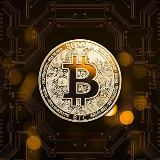手机SOS紧急联络功能:数字资产危机时刻的生命守护者(币圈安全防护新策略)
手机SOS紧急联络功能:数字资产危机时刻的生命守护者(币圈安全防护新策略)
手机SOS紧急联络功能:数字资产危机时刻的生命守护者
在这个数字资产日益普及的时代,币圈人士面临着独特的安全挑战。想象一下,你正在一个偏僻的地方完成一笔加密货币交易,突然遭遇抢劫或威胁;或者你在处理大量数字资产时,身体突然不适,无法及时求助。这些场景下,手机的SOS紧急联络功能可能成为你最后的生命线。
当普通人还在惊叹手机拍照功能的升级时,币圈精英们已经默默将SOS功能作为守护数字资产的秘密武器。毕竟,在这个领域,安全往往比收益更为重要。
SOS功能:不只是求救按钮那么简单
许多人对手机SOS功能的了解还停留在"长按电源键5秒"的简单层面。但实际上,现代智能手机的SOS功能是一个复杂而精密的系统,能够在紧急情况下自动向预设联系人发送位置信息,甚至自动报警。
苹果用户的"紧急SOS"功能可以通过连续按下电源键5次触发,随后会自动拨打当地紧急服务电话,并向紧急联系人发送包含实时位置的短信。而安卓用户则可以通过特定的按键组合或应用触发类似功能。这些功能虽然设计初衷是为一般用户提供安全保障,但对于经常携带大量数字资产的币圈人士而言,其重要性不言而喻。
币圈老鸟李先生曾分享过一次亲身经历:他在完成一笔价值数百万人民币的比特币交易时,被不明身份的人跟踪并威胁。情急之下,他迅速用SOS功能向警方发送了位置,并成功脱险。事后他表示:"如果没有这个功能,后果不堪设想。"
数字资产持有者的特殊风险
币圈人士面临的威胁远超普通人的想象。一方面,他们可能因持有大量数字资产而成为犯罪分子的目标;另一方面,加密交易的匿名性也让不法分子有机可乘。
据2023年全球加密货币犯罪报告显示,针对加密货币持有者的抢劫事件同比增长了43%。许多受害者都表示,在遭遇危险时无法及时求助,导致财产损失甚至人身伤害。
张女士是一位资深加密货币投资者,她分享了在参加一场线下加密货币聚会时的经历:"当时我们在一个相对隐蔽的场所讨论交易细节,突然闯入几个持刀的歹徒,要求我们交出钱包私钥。幸好我事先设置了SOS功能,并暗中触发了它,警方及时赶到,避免了更大的损失。"
SOS功能与数字资产安全的多维度结合
将SOS功能与数字资产管理相结合,可以构建一个立体化的安全防护体系。这不仅包括紧急求救,还包括资产保护和信息传递。
首先,SOS功能可以与数字钱包联动。当触发SOS时,系统可以自动将钱包切换到紧急模式,冻结大额转账功能,只允许小额资金流动。这类似于传统银行的"旅行模式",但在数字资产领域有着更为急迫的应用场景。
其次,SOS功能可以与身份验证系统联动。在紧急情况下,系统可以向预设联系人发送包含预先准备好的"安全词",确认情况真实性,避免被胁迫进行虚假转账。
王先生是一位区块链开发者,他设计了一套基于SOS功能的应急方案:"我们团队为高净值客户开发了一款应用,当客户触发SOS时,不仅会发送位置信息,还会发送预设的加密提示,让家人和安保团队能迅速判断情况并采取相应措施。"
实战案例:SOS功能如何挽救生命与财产
2022年,深圳一位比特币矿场主在夜间巡查时遭遇抢劫。歹徒要求他交出矿场的控制权限,并威胁要伤害他的家人。在极度危险的情况下,他利用手表的SOS功能发送了带有隐蔽标识的求助信息。当地警方迅速锁定位置,成功解救人质并抓获犯罪嫌疑人。
类似的案例在全球范围内不断上演。在韩国,一位加密货币交易商在咖啡厅工作时被绑架,他利用手机SOS功能向警方发送了持续的位置更新,最终获救。而在美国加州,一位DeFi投资者在野外工作时突发心脏病,通过SOS功能联系到了救援队,及时得到了救治。
这些真实案例表明,SOS功能不仅仅是手机的一个小功能,它可能是生死攸关的关键。
构建个人安全防护体系的实用建议
对于币圈人士而言,将SOS功能融入日常安全防护体系至关重要。以下是一些实用建议:
-
提前设置紧急联系人:确保你的SOS功能已添加多个可信联系人,包括家人、朋友和安保人员。
-
自定义SOS触发方式:熟悉并设置适合你的SOS触发方式,无论是按键组合还是语音命令,确保在最危急的时刻能够迅速激活。
-
定期测试SOS功能:每月测试一次SOS功能,确保在关键时刻不会失灵。
-
与数字资产管理工具联动:如果你的数字资产管理工具支持,可以将SOS功能与之联动,实现紧急情况下的资产保护。
-
建立应急沟通协议:与紧急联系人建立一套沟通协议,包括安全词、暗号等,确保在胁迫情况下仍能传递真实信息。
陈女士是一位加密货币投资基金的经理,她分享了团队的安全策略:"我们不仅为每位成员配备了带有SOS功能的安全设备,还定期进行安全演练,确保每个人都清楚在紧急情况下该如何行动。"
未来趋势:区块链技术与个人安全的融合
随着技术的发展,SOS功能与区块链技术的结合将更加紧密。未来,我们可能会看到以下创新:
-
基于区块链的紧急求助系统:利用区块链的去中心化特性,建立更加安全可靠的紧急求助网络,确保即使在网络受限的情况下也能发送求救信号。
-
智能合约联动:当SOS功能被触发时,智能合约可以自动执行预设的操作,如转移资产、锁定钱包等,防止在紧急情况下财产被转移。
-
生物识别结合:将生物识别技术与SOS功能结合,确保只有真正的用户才能触发紧急求助,避免被胁迫误操作。
-
AR安全指南:利用增强现实技术,在紧急情况下提供实时的安全指导,帮助用户更好地应对危机。
结语:安全是数字资产的第一道防线
在这个充满机遇与挑战的币圈,数字资产的安全问题不容忽视。手机SOS紧急联络功能作为最基础也是最关键的防护工具,每一位币圈人士都应该充分了解并善加利用。
正如一位资深加密货币投资者所言:"在这个领域,我们总是在谈论收益和风险,但常常忽略了最根本的人身安全。没有安全,一切收益都是浮云。"
随着数字经济的深入发展,个人安全防护的重要性将日益凸显。而SOS功能,作为科技与安全的完美结合,必将在未来扮演更加重要的角色。让我们善用这些工具,在追求数字财富的道路上,也为自己和家人筑起一道坚实
